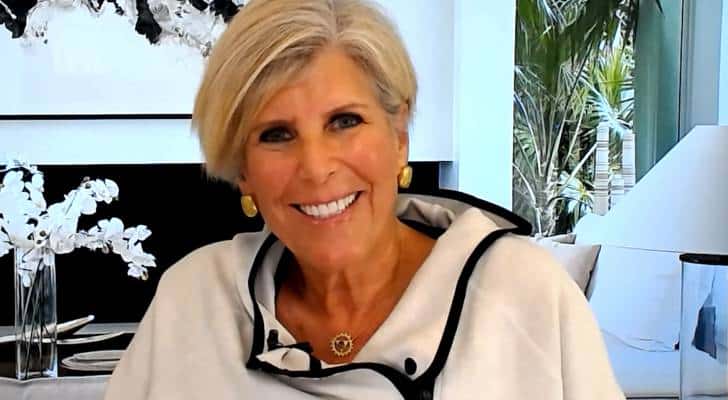
Saving money has never been easy — thinking about future needs when today’s needs are so pressing. Americans haven’t for decades, says financial expert Suze Orman.
“The majority of people in the United States have never had more than $400 in a savings account in their name,” Orman told MoneyWise. “So if something happened, an emergency happened, they wouldn’t have that money.”
WATCH NOW: MoneyWise interviews Suze Orman and Devin Miller of SecureSave
That’s when a momentary crisis becomes a long-term catastrophe: people dip into their retirement savings and credit cards, losing even more money in fees, interest and missed income.
Orman has written several books on personal finance and hosts the Women & Money podcast, but now she says it’s time to move beyond the advice.
“For 40 years, I tried to change people’s mentality. People change when they’re ready to — they don’t do what they’re told. They do it when they know they have to.
Two proposals before Congress would make new savings options available to employers, but Orman refuses to wait. She’s created her own system that she says will help Americans save money – taking the decision out of their hands.
Don’t miss
Congress takes the stage
Orman is right about the fragility of most Americans’ finances: last year, only 32% said they could handle a sudden expense of $400.
It’s only getting tougher this year thanks to inflation and higher interest rates, but Orman says it’s “not a new phenomenon.”
“It can feel like it’s new because of inflation – many people alive today never experienced inflation in the 70s… and now they’re like ‘Oh my God , inflation eats up our money,'” says Orman.
So even though Americans are notoriously bad savers, it’s not entirely their fault. As wages fail to keep up with costs, it has become difficult for even middle-income workers to save extra money — so difficult that Congress is seeking to legislate emergency savings accounts. .
Two proposals were approved by separate Senate committees in June as part of the Securing a Strong Retirement Act, also known as Secure Act 2.0.
One of the proposals – The Rise & Shine Act, now before Congress – would give workers the option of opting into an emergency savings account that would automatically cut their wages by 3%. Employees could save up to $2,500 in the account, with any excess savings going to their 401(k).
The other proposal, under the EARN Act, would allow workers to withdraw $1,000 from their 401(k) each year to cover an emergency, without incurring the usual early withdrawal penalties. They would be required to repay it within three years.
Find a private solution
The success of 401(k)s in enticing Americans to save for retirement became the inspiration for Orman’s savings business, SecureSave. The system, launched in 2020 during the pandemic, allows workers to automatically build an emergency savings account with additional financial contributions from their employer.
“We came over and said, Oh my God, if this worked for 401(k) plans, it would also work for our emergency savings accounts,” says Orman.
Orman co-founder Devin Miller says using the workplace as a savings playground makes it much easier to take action.
“If you learn more about savings behavior, and they’re given an easier path to do that through work, we’ve proven with health care, with retirement, that employees will find themselves in a better position if that boost happens that way,” says Miller.
“We were able to have a big impact on health care and retirement in this country by making it a conversation in the workplace and creating a safe place to do it.
Automation is key
Employers can offer SecureSave as a benefit for their workers. It will automatically take a small percentage of their top salary and place it in an easily accessible savings account. The employer will also match a portion of the funds – usually a few dollars per paycheck.
While workers can also add money manually, Orman says it’s the automation that has the real impact.
“You could tell people from here in the apocalypse that they should do something,” she says. “That’s why we have to help do it for them.”
According to Orman, it works.
“You know what they all say, ‘Why didn’t I do that a long time ago?’ “, she says.
When employers give a little nudge, it adds to the incentive to save, Miller says.
“We typically see around $100 per employee per year. But it’s done as a drip campaign. So if you put in $25, your employer is going to put in $5 – so it’s not a lot of money, but it creates that incentive to start and stick with it.
Savings bring security
Orman and Miller say they see results from companies that have implemented SecureSave — that people get excited when they see their accounts grow, and that translates into a better quality of life.
Why should employers care about this in the first place? Because, they say, a better quality of life makes better employees.
“When you have financial stress, something happens and you don’t have the money to deal with it. Think you’re focused on work? said Orman. “Or are you in Financial La La Land trying to figure out what I’m going to do?”
90% of Americans are stressed about money, according to a study by Thriving Wallet, impacting both mental and physical health through mood, sleep and relationships.
“So when they have a place to go, they know their employer cares about them, they start caring about themselves,” says Orman.
“They don’t even miss the $25 per paycheck. And then a lot of times they come back and say I’m going to raise it to $30 and then to $40.
With SecureSave and the proposals going to Congress, the focus is on a low barrier to entry. Because the hardest part, Orman has learned over the decades, is always convincing people to get started.
“Usually people have to hit rock bottom before they make a change,” says Orman.
WATCH NOW: Full Q&A with Suze Orman and Devin Miller
What to read next
This article provides information only and should not be construed as advice. It is provided without warranty of any kind.
